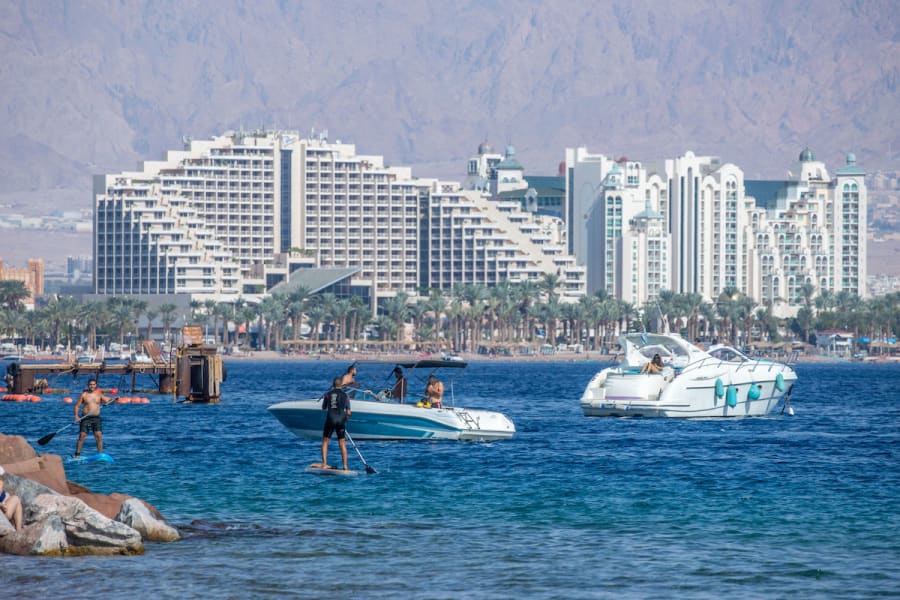Israel to host first international summit on food scarcity, climate change
The October conference will include Abraham Accords partners

Israel will host the first International Summit on Food from the Sea & the Desert in Eilat next month to address the relationship between food scarcity and climate change.
The Eilat conference is scheduled to take place Oct. 18–20 with representatives from Cyprus, Malta and Jordan – and two of the signatories of the Abraham Accords, Bahrain and Morocco.
Israel’s Ministry of Agriculture, Ministry for the Development of the Negev and the Galilee and Ministry for Regional Cooperation are behind the initiative, which will promote “knowledge and technologies in the field of marine and desert agriculture” in addition to “strengthening research and business collaborations in the field,” according to a press release by the Ministry of Foreign Affairs.
The conference is also meant to promote “Israel’s contribution and leading role in the area of marine and desert agricultural technologies” while helping to “develop the city of Eilat and the [Hevel] Eilot region as a national and international center for the production of food from the sea and the desert.”
Last year, Israel adopted a multi-year development plan for Eilat with $49 million set aside to transform the city and its environs into an international center for food technology and agri-tech.
Eilat has always relied heavily on its tourism industry, but an Israeli study earlier this year showed that “the number of international and domestic tourists to outdoor recreation sites in Israel will significantly decline” by 2050 because of rising temperatures.
Israel’s Minister of Agriculture and Rural Development Oded Forer said that Israel has “tremendous potential” when it comes to inventing technology to deal with food security and the climate crisis.
“The whole world is currently dealing with the issues of food security and the climate crisis; the connection between the desert and the sea offers much opportunity to develop advanced technologies on which future food growth will be based,” Forer said. “The State of Israel has tremendous potential in this field, and is already leading relevant research and technology development. This conference will set the wheels turning on cooperation with countries across our region with similar challenges and climates.”
According to Israel’s Ministry of Foreign Affairs, “The issue of global food security will face many challenges in the coming years, including the rate of population growth, global warming and frequent climate changes, rising sea levels, and decreasing fertile areas for agricultural crops.”
The summit will see not only researchers and experts within the fields of food scarcity and climate in attendance, but also entrepreneurs, who are seeking to share and improve best practices “in the effort to realize the tremendous potential inherent in the connection between the sea and the desert, in Israel and the countries of the region.”
The participating ministers of agriculture will take part in a panel on “the future of global food security in the light of the climate crisis,” on the first day of the summit.
Prof. Yonatan Zohar, an expert in the field of fishing from the University of Maryland, is scheduled to lead the opening session, while other speakers will include Flavio Corsin of Aqua Spark, which promotes global investments in the field of water; Dr. John Buchanan, the CEO of the Center for Aquaculture Technologies; Dr. Hanna Rosenfeld, of the National Center for Mariculture; and Prof. Amir Sagi from Ben-Gurion International University.

The All Israel News Staff is a team of journalists in Israel.














